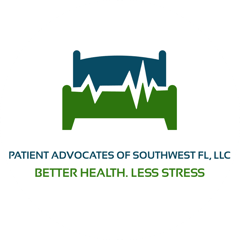5 QUESTIONS to Ask Your Doctor Before You Get Any Test, Treatment, or Procedure
Posted on January 3, 2023
Health care costs in this country, continue to rise every year. It’s been going on for decades. A primary culprit is unnecessary medical treatment. Experts estimate it’s to the tune of hundreds of BILLIONS of dollars a year.
Health care costs in this country, continue to rise every year. It’s been going on for decades. A primary culprit is unnecessary medical treatment. Experts estimate it’s to the tune of hundreds of BILLIONS of dollars a year.
According to Marshall Allen, author of Never Pay The First Bill, examples of overtreatment are all around us. “A Lown Institute study tallied more than 100,000 unnecessary procedures performed in hospitals during the first year of COVID-19. They included stents for stable coronary disease, spinal fusion for back pain, hysterectomy for benign disease, and more.”[i]
There are numerous reasons for excessive ordering of tests has become routine as a way of reducing the risk of malpractice. Doctors who take money from pharmaceutical companies are more likely to prescribe the pricey brand-name drugs manufactured by those same companies. Research has also shown that doctors who purchase magnetic resonance imaging (MRI) machines ordered substantially more MRIs for their patients.
Every medical procedure or drug comes at a cost and with physical risks. Overtreatment wastes money and contributes to higher medical costs for ourselves and others. A side effect of overly excessive testing and treatment can also harm patients, generating mistakes and injuries believed to cause 30,000 deaths each year.[ii]
You can avoid unnecessary testing and treatment by being prepared when you talk to your clinician. You need to ask the right questions. If your doctor or other clinician is recommending a test or drug or procedure that’s discretionary – you may need it, or you may not – step back and discuss your options. The Choosing Wisely campaign, an initiative of the ABIM Foundation recommends asking these five questions the next time your doctor or nurse practitioner orders tests for yourself or someone you love:
1. Do I really need this test or procedure? Medical tests help you and your doctor or other health provider decide how to treat a problem. And medical procedures help to actually treat it.
2. What are the risks? Will there be side effects? What are the chances of getting results that aren’t accurate? Could that lead to more testing or another procedure?
3. Are there simpler, safer options? Sometimes all you need to do is make lifestyle changes, such as eating healthier food or exercising more.
4. What happens if I don’t do anything? Ask if your condition might get worse — or better — if you don’t have the test or procedure right away.
5. How much does it cost? Ask if there are less-expensive tests, treatments or procedures, what your insurance may cover, and about generic drugs instead of brand-name drugs.[iii]
Asking what happens if you wait can help avoid the host of financial and physical problems that can come with unnecessary treatment. Question #1, perhaps is the most important, in that it requires the clinician to lay out the risk of not taking action so you can compare it with the risk of taking action.
“Often there’s no serious risk in waiting. In those cases, you can take the time to research the best care for your ailment. You can get a second opinion and learn about your options from Google Scholar or MedlinePlus.gov, which contains a wealth of medical information published by the U.S. National Library of Medicine. You can check the recommendations of the U.S. Preventive Services Task Force, which produces independent, evidence-based guidelines.
On the flip side, if the clinician can make a clear case for why you need the proposed treatment now – like maybe you’ll infect someone else, or there’s a strong chance your condition will worsen to the point that it will become an emergency – then you can proceed, knowing you’ve considered the option of waiting.
Asking, “What happens if I wait?” won’t prevent you from getting the treatment you need. But it could protect you from getting medical treatment you don’t need. Give it a try and see if it reframes the conversations in a constructive way.
Talk to your doctor to make sure you end up with the right amount of care — not too much and not too little.” [iv]
[i] Allen, Marshall. Never Pay The First Bill.2021.
[ii] Chad Terhune, The $200 billion perils of unnecessary medical tests. PBS. May 24, 2017. https://www.pbs.org/newshour/health/200-billion-perils-unnecessary-medical-tests#:~:text=Some%20experts%20estimate%20that%20at,cause%2030%2C000%20deaths%20each%20year.
[iii] Choosingwisely.org/patient-resources. 5-Questions-Poster_8.5x11-Eng.pdf (choosingwisely.org)
[iv] Allen, Marshall. Never Pay The First Bill.2021.



